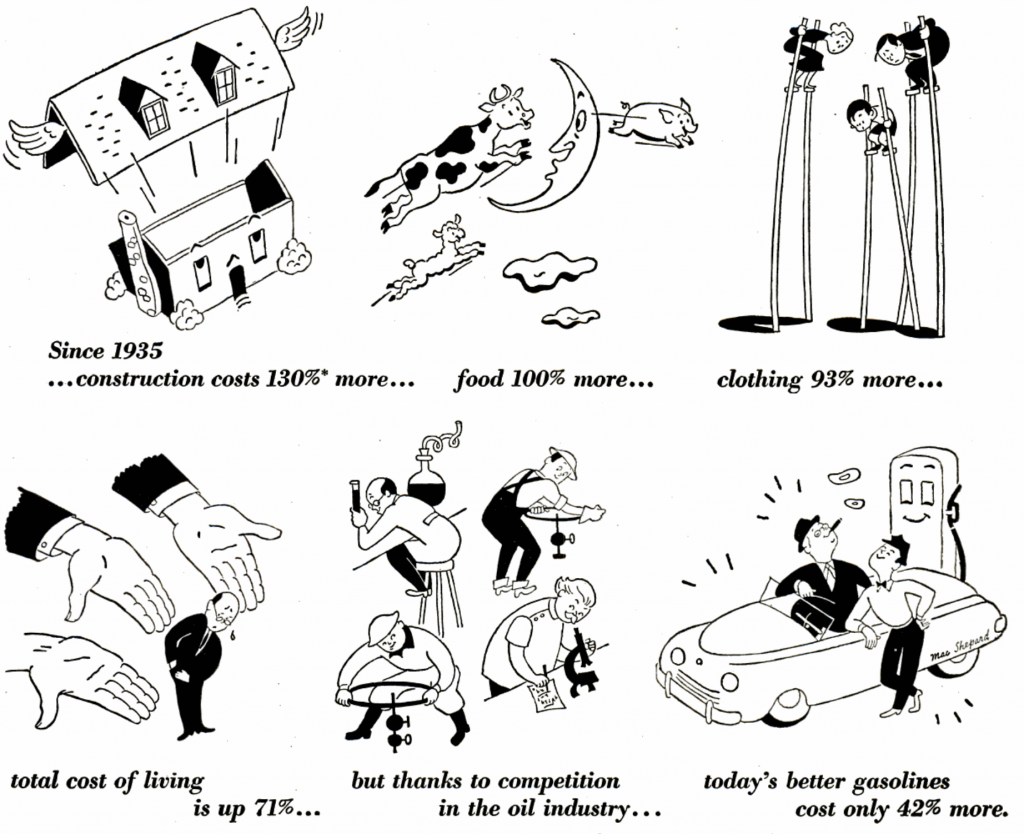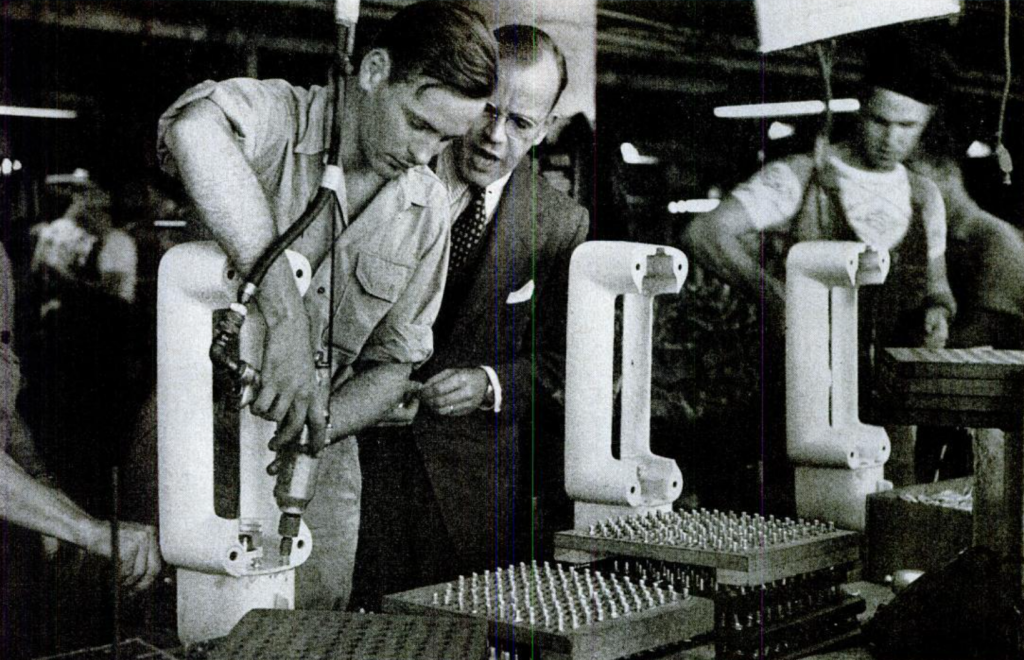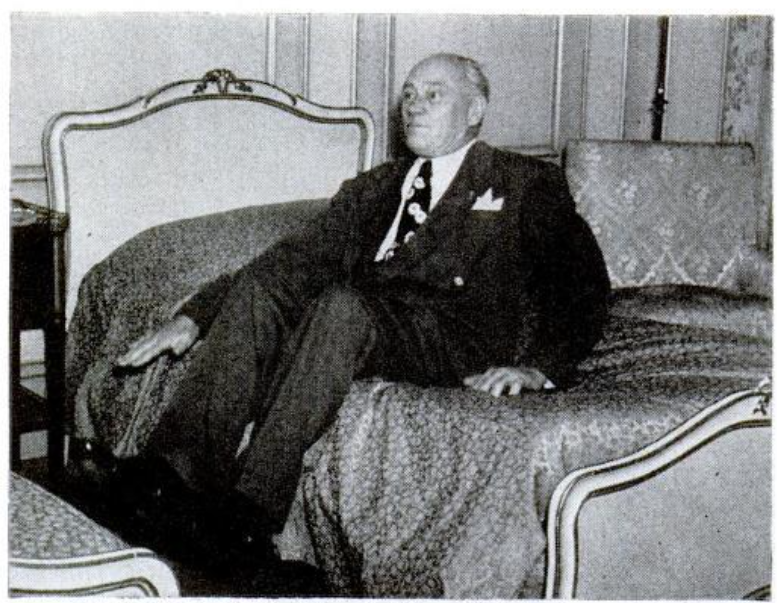Ethical leadership, integrity and staying true to one’s beliefs are cornerstone traits of effective leadership. Yet, as I reflected while rereading the third book in the Twentieth Century Journey by William Shirer, remaining steadfast in one’s principles can be extraordinarily difficult, especially when those in positions of power hold sway over your career. The tension between protecting one’s livelihood and standing by one’s convictions is a dilemma many leaders face, and William Shirer’s story offers a sobering illustration.

Shirer, a protégé of Edward R. Murrow, worked closely with the legendary pioneer of television news at CBS in the late 1940s. Murrow had initially hired him as a European correspondent during World War II, where they forged a strong professional bond. When the war ended, CBS owner Bill Paley tasked Murrow with leading the company’s new television news division, which meant stepping away from his role as a radio broadcaster—a risky move at a time when radio still reigned supreme. Murrow, needing a strong on-air presence to fill his shoes, chose Shirer to host a radio news program. The show quickly became a ratings success, solidifying Shirer’s reputation as a prominent voice in journalism.

Money Over Loyalty
Trouble emerged when a key advertiser took issue with Shirer’s progressive views, which, during the politically charged era of the Red Scare, were perceived as sympathetic to communism. Despite the program’s popularity, the advertiser demanded Shirer’s removal. Shockingly, Paley conceded, granting the advertiser the power to deliver the news to Shirer: his next broadcast would be his last.
Stunned by the decision, Shirer reached out to both Paley and Murrow, confident that Murrow—his mentor and longtime friend—would champion his cause. Their shared experiences reporting on the war in Europe had forged a deep bond rooted in mutual respect. But to Shirer’s dismay, Murrow sided with the network, supporting his dismissal.
On his final broadcast, Shirer announced his departure with remarkable restraint, avoiding any criticism of CBS, Murrow, or Paley. Yet his measured words couldn’t stem the tide of public outrage. Letters, phone calls, and messages of support poured in from listeners and prominent figures alike. The backlash was so intense that the advertiser, fearing damage to its brand, reversed its position and urged Paley to reinstate Shirer.
Discrediting an Employee
Paley, however, refused to budge. Instead, he blamed Shirer for the wave of negative publicity, making it clear that his authority as the head of CBS was non-negotiable. Despite the public uproar, Shirer’s dismissal stood—a glaring reminder of the network’s priorities.
Paley took it a step further, instructing Murrow to tarnish Shirer’s reputation by fabricating reasons for his ousting, including false allegations of incompetence. Murrow complied, furthering the damage to Shirer’s career and irreparably fracturing their friendship. For Shirer, the betrayal was devastating. Murrow, a man he had trusted and worked alongside for over a decade, had not only abandoned him but actively contributed to the destruction of his professional life.
Ethical Compromises
This story is a sobering reminder of the ethical compromises leaders may make when corporate interests are at stake. The ease with which Paley and Murrow prioritized business demands over loyalty and integrity stands in stark contrast to the moral ideals they once seemed to embody. Shirer’s experience underscores the profound pain of betrayal by those we trust most, a pain that often cuts deeper than any professional failure.
It serves as a lesson in the importance of standing by one’s principles, even when faced with difficult choices. Leaders, in particular, must be mindful of the responsibility they carry to lead by example, making ethical decisions that reflect their values and respect their teams. The actions of Paley and Murrow highlight the lasting consequences of unethical behavior—not only on those directly affected but, on the culture, and trust within organizations.
The Consequences of Betrayal
This case highlights the far-reaching impact of ethical compromises and underscores the critical importance of accountability. It serves as a reminder that every decision creates ripples, influencing individuals, organizations, and reputations. Leaders play a crucial role in setting ethical standards within their teams, and prioritizing integrity is essential for fostering trust and transparency.
Years after Shirer’s dismissal, Murrow grappled with guilt over his part in the incident. A chance encounter in Times Square nearly a decade later gave Murrow an opportunity to seek reconciliation. However, Shirer, still unable to forgive what he saw as a betrayal of principles for corporate interests, refused to reconcile. For him, Murrow’s actions represented an irreparable fracture of trust.
As Murrow neared the end of his life, battling cancer, the two met one final time. Though they spoke and attempted to mend their damaged relationship, the scars of the past ran too deep to fully heal. Their story serves as a powerful cautionary tale about the cost of compromising ethics for expediency and the lasting consequences of broken trust.
Challenges to Ethical Leadership
While the importance of ethics in leadership may seem self-evident, numerous factors can hinder a leader’s ability to uphold ethical standards. These challenges include:
- Stakeholder pressures: Leaders often face demands from stakeholders, such as shareholders or executives, to prioritize profits over ethical considerations.
- Conflicting values: Differing personal beliefs and values within a team can complicate decision-making and create ethical dilemmas.
- Lack of awareness: Leaders and team members may lack knowledge about ethical practices or fail to recognize the broader impact of their actions.
- Temptations and biases: Personal desires, or unconscious biases can cloud judgment, making ethical decision-making difficult.
- Ambiguity in guidelines: In situations without clear policies or protocols, leaders must rely on their principles to guide ethical choices.
- Pressure to deliver results: In fast-paced, competitive environments, the focus on meeting targets can tempt individuals to cut corners or act unethically.
- Absence of consequences: When unethical behavior is unpunished—or worse, rewarded—it creates a culture of permissiveness, encouraging further misconduct.
- Groupthink: In team settings, individuals may conform to the majority rather than voicing concerns about unethical actions.
- Conflicts of interest: Personal relationships or financial incentives can skew priorities, leading individuals to favor their own interests over ethical considerations.
- Unrealistic expectations: High-pressure work environments can push employees to engage in unethical practices to meet targets. Leaders must ensure that goals are achievable without compromising integrity.
Preventing Ethical Compromises
Addressing these challenges requires deliberate effort and commitment from leaders and organizations alike. Here are some things that can be done:
- Lead by example: Leaders must set an example of ethical behavior and hold themselves accountable for their actions. This creates a positive work culture and encourages employees to follow suit.
- Establish clear values: Organizations must establish a code of ethics that outlines the values and principles they stand for. These should be communicated clearly to all employees, creating a shared understanding of what is considered acceptable behavior in the workplace.
- Encourage open communication: Employees must feel comfortable speaking up about ethical concerns without fear of retribution. This requires leaders to create an environment where open communication is not only encouraged but also valued.
- Establish a code of ethics: A code of ethics is a written document that outlines the values, principles, and expectations for ethical behavior within an organization. It serves as a guide for employees on how to make decisions when faced with ethical challenges. Organizations should regularly review and update their code of ethics to ensure it aligns with their values and any changes in the industry or society.
- Provide training and resources: Employers should invest in training programs that educate employees on ethical principles, laws, and regulations relevant to their roles. Additionally, providing access to resources such as hotlines or online platforms for reporting ethical concerns can also help employees make informed decisions.
What Would You Do?
In the situation described above, Bill Pauly was the driving force behind the ethical compromises that Ed Murrow ultimately followed. As the owner and CEO of the organization, Pauly occupied the top of the hierarchy. When you’re unable to influence a leader at this level and want to uphold your integrity, sometimes the difficult but necessary choice is to leave the organization.
For Murrow, a renowned broadcaster, finding another prestigious role would likely have been easy. However, his reasons for staying remain unclear. Some speculate it was because he was aware of Pauly’s unethical behavior, such as blackballing employees, and feared that his own career might meet the same fate as Shirer’s if he didn’t align with Pauly’s expectations.
It’s a challenging dilemma for any leader: What would you be willing to do in a situation like this? Would you compromise your values or take the harder path to preserve them?
Conclusion
Ethical leadership is the cornerstone of a positive, sustainable workplace culture—one where individuals feel valued, empowered, and motivated to contribute their best. It demands ongoing self-reflection, unwavering moral principles, and a steadfast commitment to upholding ethical standards. As leaders, we have a duty not only to model ethical behavior in our own actions but also to cultivate an environment that inspires and supports ethical practices across our teams. By leading with integrity and intention, we can foster meaningful change and build a better future through the power of ethical leadership.
Click here for a post on leading with integrity as a senior leader.








